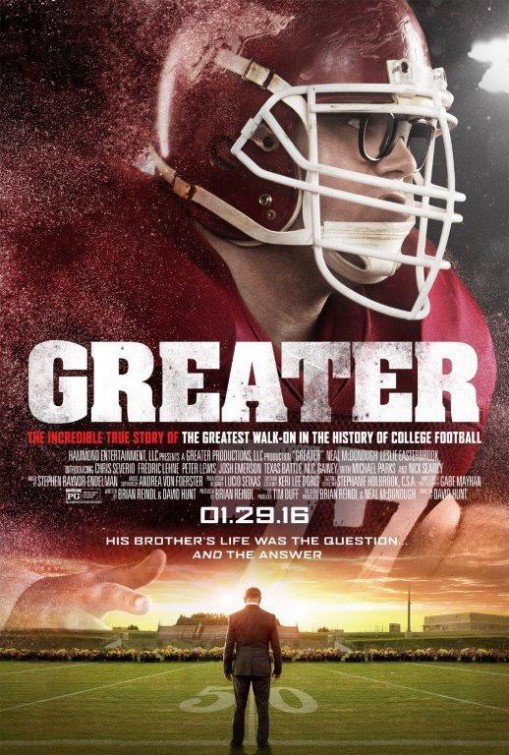“Clever Boy Saves Village from Political and Religious Confusion”
What You Need To Know:
THE BOY WHO HARNESSED THE WIND is inspiring and compelling, with excellent performances. It has a strong Christian, moral worldview, mixed with a few Non-Christian elements. For example, Williams mother stops his father from praying for rain. She believes says she doesn’t believe in praying for rain like their ancestors (implying that only education and science are necessary). A redemptive story between father and son is a highlight of THE BOY WHO HARNESSED THE WIND. Caution is advised for younger children.
Content:
Strong Christian, moral, pro-capitalist worldview mixed with some non-Christian elements, including a humanist element where woman stops a man for praying to God because she believes only education and science are necessary plus a brief Muslim funeral and there’s a dance group dancing to “the spirits” during a Christian funeral
Three light obscenities
Light mild violence due to political unrest
No sexual content
Upper male nudity during a brief bath
No alcohol use
No smoking or drugs; and,
Lying, gambling reference, blackmail, eloping.
More Detail:
The beautiful backdrop of this movie is the village of Wimbe, located in the central part of Malawi, known as the warm heart of Africa. The movie denotes several factors as elements leading to the famine of 2001-2002, namely political mismanagement both at the local and national level, farmers selling land to the tobacco growers for deforestation, and the unpredictable torrential rainfall. Land, water and resource management have been issues that have plagued sub-Saharan Africa for years with a variety of solutions pouring in from other countries. What makes this movie unique is that the solution comes from within Malawi.
The story begins with the death of John Kamkwamba, William’s uncle, which is followed by a Christian funeral. The Gule Wamkulu (Big Dance), a secret gang of masked, stilt dancers, also attend the funeral. The Gule Wamkulu often attend important events in that culture to represent the world of the spirits. Certain authorities on the Gule Wamkulu state that they believe in a Supreme Being, one who created all living things and cares about human beings. There is an otherness about the Gule Wamkulu that’s not directly explained in the movie. Their appearance may scare young children.
After the funeral, the family is depicted having a meal together which is started with a prayer ending in Jesus Christ’s name. Young William Kamkwamba has a great desire to go to school and soon discovers a uniform prepared and waiting for him in his room. Not long after, William learns that his father, Trywell, has only paid part of the fee. Unless Trywell gives the rest of the school fees to William, he will be forced to leave the school. Trywell is afraid to give William the money because the farming forecast looks very grim. This creates tension between father and son.
The local political climate has the potential to reach a boiling point. The farmers are being swayed to sell their land for the trees to the tobacco companies, which have all moved further south. The trees will be used to help dry the tobacco. Once the trees have been cut down, the land is defenseless against the heavy rains. In addition, the N.U.P. (National Unity Party) comes to the village shouting in PA system from a moving vehicle. Trywell views democracy as a bad idea.
Since the school fees were not paid, William’s sent home permanently from the school. He learns that his sister, Annie, has secretly been meeting with his science teacher and they are in love. Gilbert, William’s friend, encourages him to break the science teacher’s bicycle to teach him a lesson. Instead, William becomes fascinated with the lantern on his science teacher’s bicycle, which is powered by the pedals.
William boldly approaches the science teacher in his classroom to ask how the lantern on his bicycle works. He agrees to keep the science teacher’s love affair a secret, so the teacher tells him it’s powered by a dynamo using magnets and electricity. The science teacher then takes William to the library and explains to the librarian that William will need access to the library. This is where William finds a book about using energy. The book gives William the idea that he could build a windmill to provide power to a pump. He finds most of the parts in the junkyard. This will end the family’s need to rely only on the rains.
When Malawi’s President Muluzi comes to the village of Wimbe, the local chief speaks out against his policies, especially the President’s decision to put the farmers and all of rural Malawi at a disadvantage. The chief is forcibly removed from the stage and the President’s men beat him up away from the people. William and Gilbert, the chief’s son, rush to help the chief. Shots are fired into the air and the people scatter in fear. The President and his entourage quickly leave.
As the water shortage gains steam, the people become desperate for grain. The situation is bleak. William only needs two critical components to build the windmill – the dynamo and his father’s bicycle. How can he convince his family he can bring water after building the windmill?
THE BOY WHO HARNESSED THE WIND has a strong Christian, moral worldview, with a few elements that are Non-Christian. For example, William’s mother, Agnes, stops his father from praying to God for rain. Agnes says they don’t believe in praying for rain like their ancestors (implying that only education and science are necessary). Also, there’s a brief Muslim funeral after Chief Wimbe dies, and the Gule Wamkulu can be viewed as a cultic dance group, although the movie leaves the nature of their beliefs nebulous. The cinematography and acting are excellent as is the movie’s redemptive father-son story, which is interwoven throughout the movie’s plot. Caution is advised for younger children.


 - Content:
- Content: 


